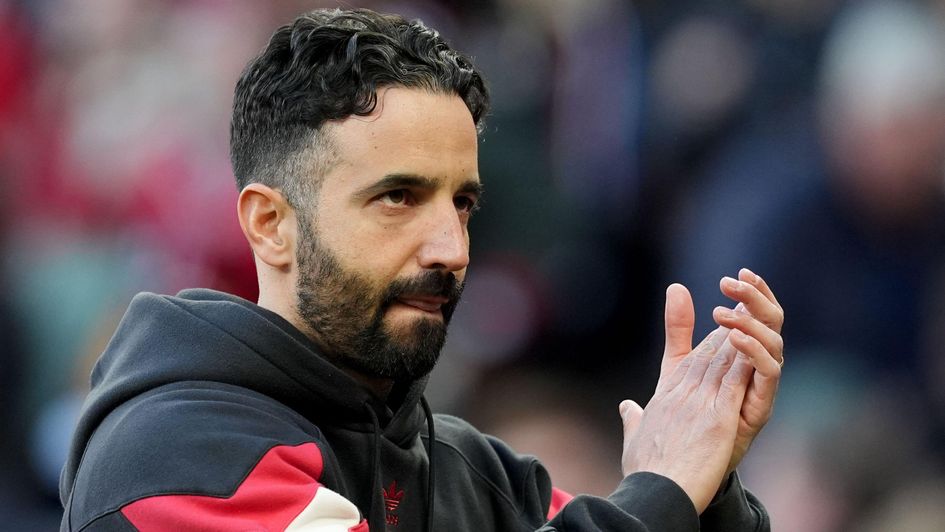The noise surrounding Manchester United never stops.
Hold Pep Guardiola’s Manchester City at bay and a former legend furiously rants about it not being good enough in the post-game fallout.
The irony about the Manchester Derby, as drab as it was, was that if any team looked like winning it in the final 20 minutes, it was United.
Nevertheless, though a club with the stature and size of Manchester United isn't anywhere near where they want to be, their form and performances recently have improved.
For the teams not chasing Champions League qualification, these last few game weeks have less jeopardy.
But for Ruben Amorim, every match from now until the end of the season matters.
The Portuguese manager was brought into the current mess at the busiest time and it's clear that he is determined to install a dogmatic style of play.
Each game is an assessment of how far the team has come under him and whether or not they are executing his style of play effectively.
Ultimately, we aren't seeing the best version of United under Amorim yet with much to be improved upon.
But they are showing signs of being a more solid, resilient side - one which is starting to trend in the right direction.
An adaptive style of play
United’s last six league games tell us a lot about where they are right now.
Three draws against sterner opposition (Arsenal, Man City, Everton), two wins against teams that are highly likely to go down (Ipswich and Leicester) and a loss vs Nottingham Forest in a game where they should’ve got something.
Good enough to beat the teams at the bottom, but not good enough to conquer those at the top.
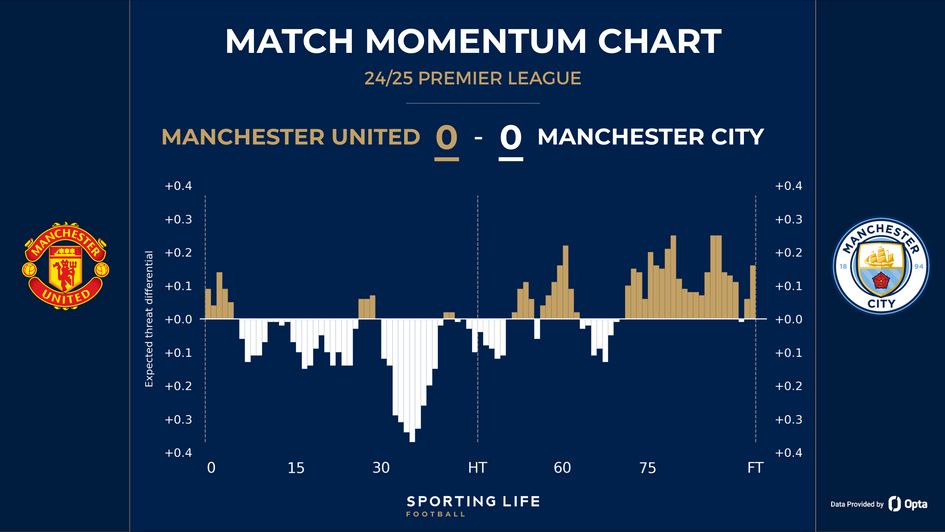
Amorim has finally shifted to a style that prioritises compactness and relies on United’s counter-attacking ability against teams like Arsenal and City out of necessity.
He explained after the draw to Arsenal: "We don’t want to play like this, but sometimes we have to do things that are not popular. We need the points."
It’s a style he used for Sporting CP in the Champions League if he thought an opponent’s attack was dangerous. It's one he has reverted to with United as the team gets fully up to speed with his system.
Ten Hag and Ole Gunnar Solskjaer often favoured a counter-attacking approach when needed as the players are suited to this style.
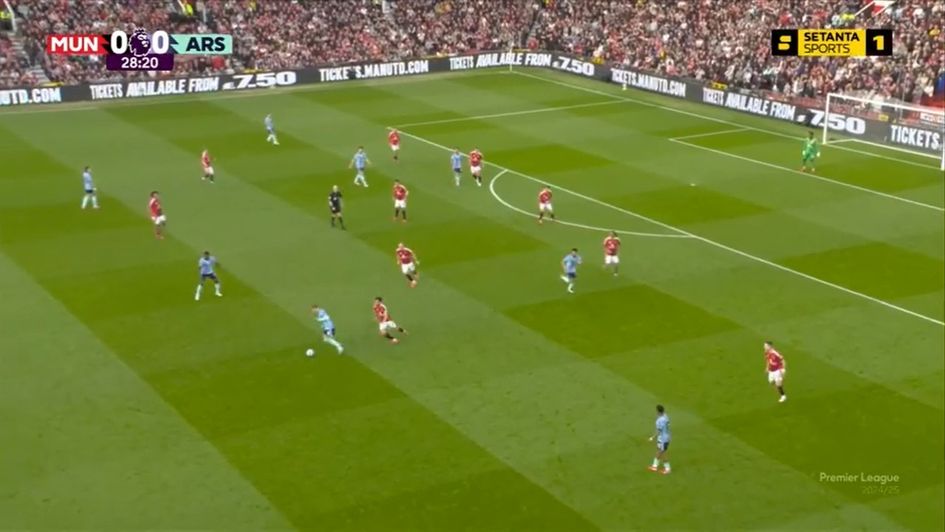
Playing with five defenders also makes it harder for teams to break them down as they match up against five attackers pinning them to compact the centre.
This isn't the way Amorim wants to play going forward, but getting better performances and results has given the team a boost and much-needed confidence to stop the rot.
Issues in the final third
When United haven’t opted to sit deep, the patterns of play Amorim has been waiting to see are slowly emerging.
The problem has been teams press United when they build up from the back, on whichever side the wide full-back has been on.
As this happens teams also press the inside central midfielder resulting in United simply hoofing it long to Rasmus Højlund.
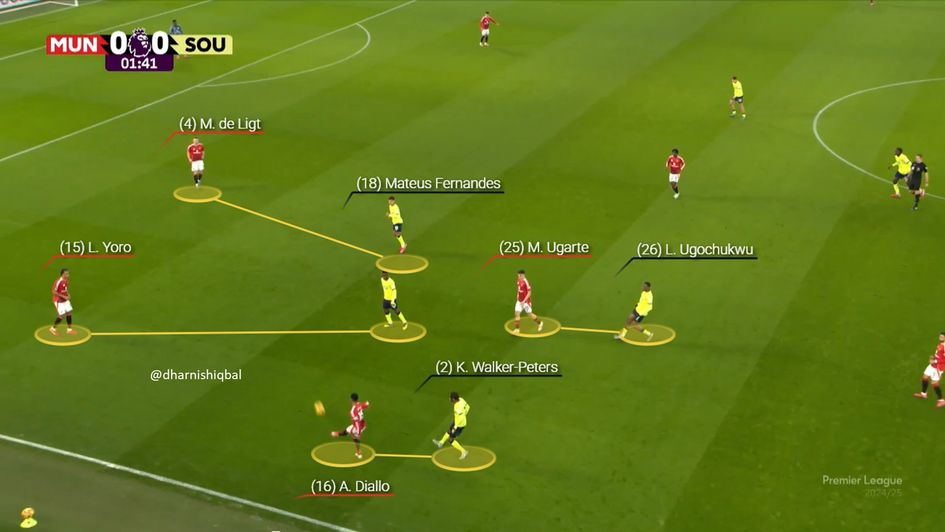
The remedy to this problem appeared vs Nottingham Forest where United’s build-up improved vastly.
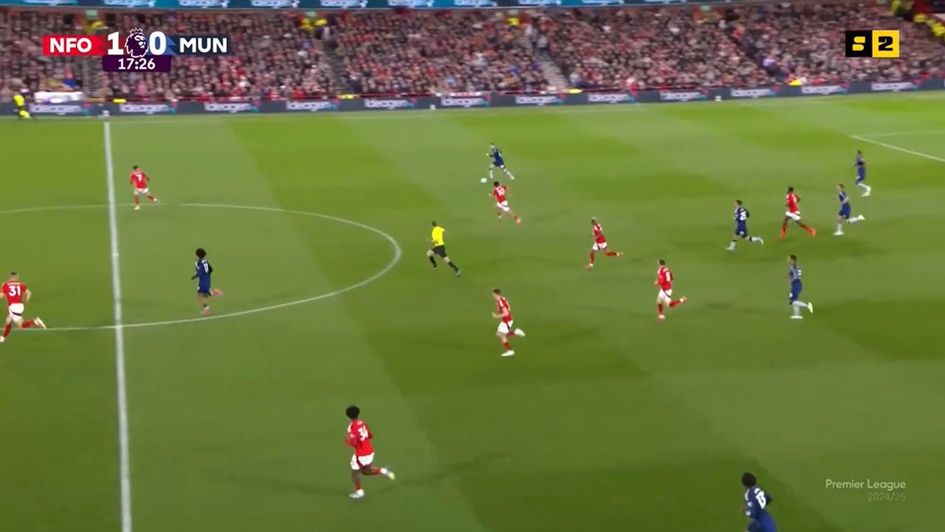
The Red Devils were able to use the opponent’s press against them and, as Forest players attempted to overwhelm the full-back on one side, Patrick Dorgu found the dropping winger in Joshua Zirkzee who could play it to Casemiro to switch the ball.
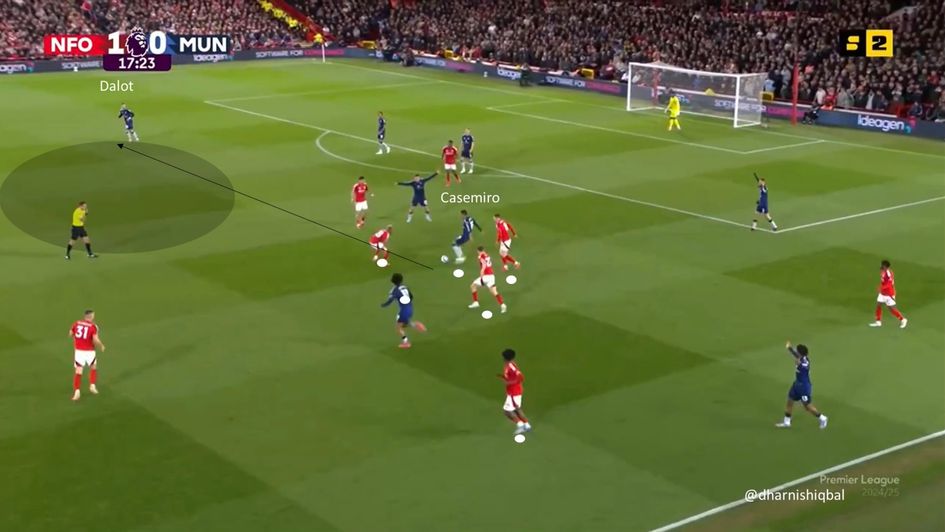
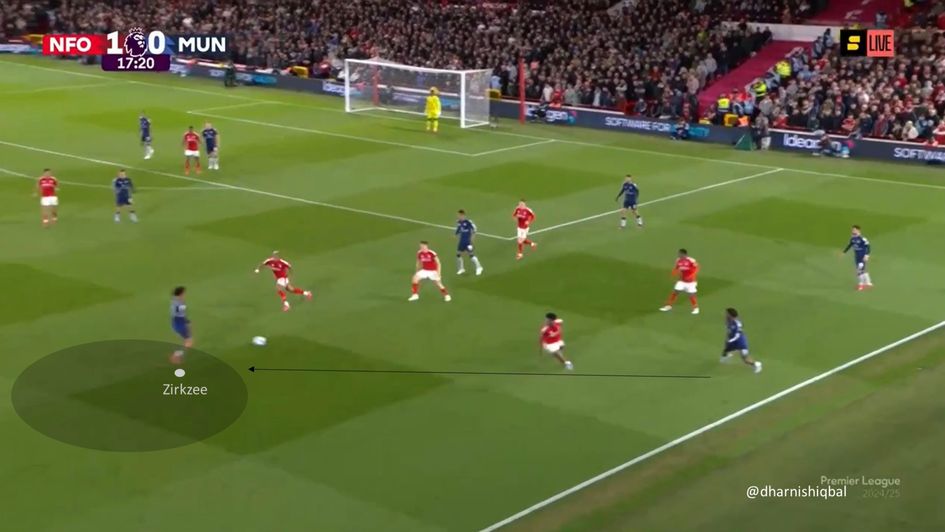
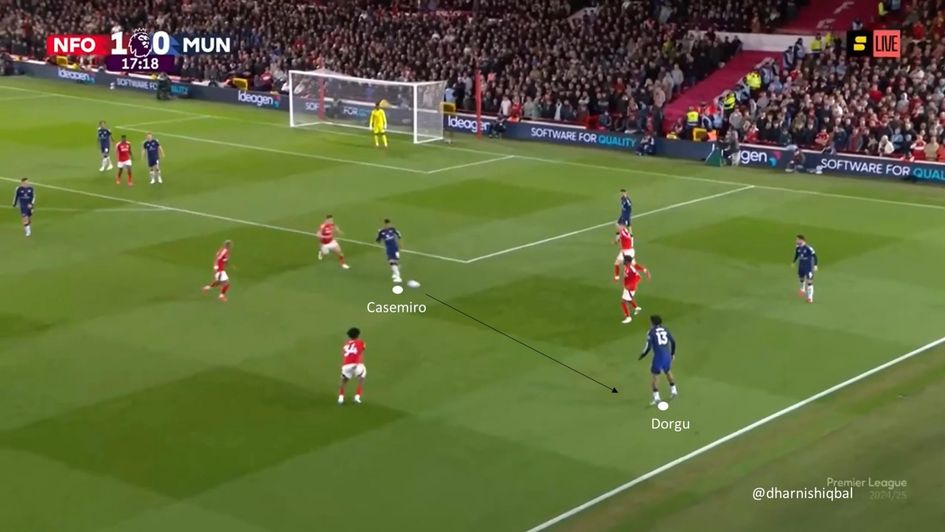
This is exactly what United fans and Amorim have been waiting for.
Noticeably the fact this build-up was against Forest is encouraging from a United perspective, as most of their points have against teams in the bottom three.
The main issue emerging now, however, has been the woeful decision-making in the final third.
Perhaps that's been down to the fact this United attack has been attempting to operate in a dysfunctional side. But in the final third, the cross, the final pass or the final correct decision is lacking.
Amorim himself pointed this out: "We controlled the game, then we tried sometimes with good opportunities but I think the last cross, the last pass, the last assist wasn’t there."
There aren’t many options in attack with the number of injuries United have at the moment, it’s mainly been a forward line of Alejandro Garnacho, Højlund and Zirkzee.
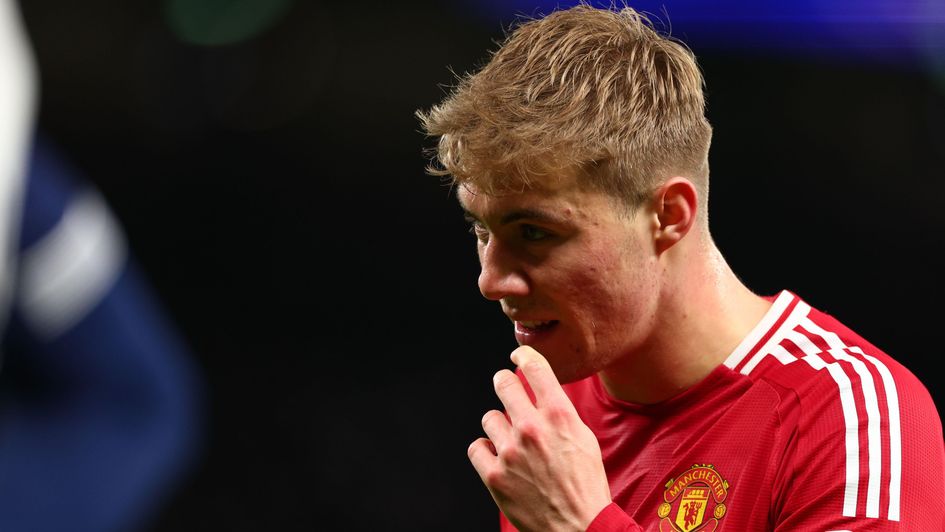
While the full-backs are crucial in this system, Dorgu is still adapting to life at Old Trafford and Diogo Dalot’s crosses are often mis-hit.
Garnacho is a player who makes movements to get into good positions and the best moments often fall to him, but when the final action is needed to score, he isn’t mature enough to make the right decision.
Scoring goals was a problem under Ten Hag and it’s remained one under Amorim.
Staggeringly, United are the sixth-lowest goal scorers in the league, with teams close to the bottom like Wolves out-scoring them.
Step by step, it is improving though.
The constant weight of pressure at Old Trafford due to repeated defeats was difficult yet the players have shown resilience.
In order for United to become the best version of themselves under Amorim, they must improve their long-standing predicament in the final third.
More from Sporting Life
Safer gambling
We are committed in our support of safer gambling. Recommended bets are advised to over-18s and we strongly encourage readers to wager only what they can afford to lose.
If you are concerned about your gambling, please call the National Gambling Helpline / GamCare on 0808 8020 133.
Further support and information can be found at begambleaware.org and gamblingtherapy.org.







